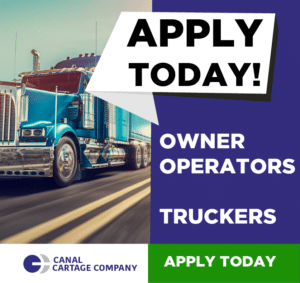Have you ever thought about starting your own trucking company? With the high demand for transportation services and the potential for big profits, it might seem like an attractive business opportunity.
But where do you begin?
Starting a trucking company is not a decision to be taken lightly. It requires careful planning, research, and a significant amount of capital.
While there is no single blueprint for success in this industry, there are certain steps you can take to increase your chances of thriving as a new business owner.
If you’re willing to commit time, money, and effort to start your own trucking company, you’ll want to know how to do it the right way.
From securing funding to choosing the right equipment, this guide will walk you through the key steps you need to take to launch and grow a successful trucking business.
So let’s get started!
What You Need to Start a Trucking Company
Have a clear understanding of what you need to get started. In this article, we’ll take a look at the essential components of starting a successful trucking company.
Business Plan
A business plan should outline your vision for your trucking company, your target market, your financial projections, and your marketing strategy.
A business plan can help you secure financing, make informed decisions, and stay on track as you grow your business.
Trucks and Equipment
To start a trucking company, you’ll need to invest in trucks and other equipment, such as trailers, permits, and insurance.
Depending on your budget and the size of your company, you may choose to lease or purchase your vehicles outright.
Consider the costs of maintenance, fuel, and repairs when deciding on the types of trucks and equipment to invest in.
Appropriate Licenses and Permits
To operate a trucking business, you’ll need to obtain various licenses and permits.
This may include a commercial driver’s license (CDL), motor carrier authority (MC), freight broker authority (MC), and others.
Additionally, you’ll need to ensure that your vehicles comply with all state and federal regulations, such as weight limits and vehicle inspections.
Insurance
Insurance is a critical component of any trucking business. You’ll need to invest in liability insurance, which covers damage to other vehicles or property in the event of an accident, as well as cargo insurance, which protects the goods you’re transporting.
It’s also a good idea to invest in general liability insurance, which covers other kinds of accidents or incidents, such as slips and falls at loading docks.
Qualified Employees
As your business grows, you’ll need to hire qualified employees to handle various aspects of your operation.
This can include drivers, dispatchers, and administrative staff. Make sure to vet your employees carefully to ensure that they have the necessary experience and qualifications to work in the trucking industry.
Steps to Start a Trucking Business
1. Define Your Business Structure and Obtain Licenses
Get the necessary licenses and permits to operate a trucking business in your area. This includes an operating authority (MC number), a motor carrier permit, and Interstate Commerce Commission (ICC) number.
2. Create a Business Plan
Develop a business plan which outlines your goals, financial projections, marketing strategies, and operating procedures. This plan will act as a guide for you as you start and grow your business.
3. Invest in Equipment
Invest in the necessary equipment for your trucking business, including trucks, trailers, GPS devices, and other tools for managing your business.
4. Obtain Insurance Coverage
Ensure that you obtain appropriate insurance coverage for your business. This includes liability, physical damage, and cargo insurance, as your clients will expect you to have adequate coverage in case of accidents or damage to their goods.
5. Establish a Network of Clients
Build a network of clients by advertising your services in publications such as industry trade magazines, networking with shipping brokers and freight forwarders, and creating a website that showcases your services.
6. Hire Staff
As your business grows, you may need to hire administrative and driving staff.
Ensure that you comply with federal and state labor laws and have regular safety training sessions for your employees.
7. Manage Finances
Track expenses and revenue, monitor cash flow, and seek advice from financial experts where necessary.
Is it Worth Starting a Trucking Company?
Trucking companies are the backbone of the transportation industry, delivering goods across the country and keeping our economy running. But is it worth starting a trucking company?
Here are some things to consider before taking on this venture.
Regulations and Compliance
One of the biggest challenges of starting a trucking company is dealing with regulations and compliance.
The industry is heavily regulated, and adhering to state and federal regulations can be difficult and costly.
You will need to comply with safety regulations, hours-of-service requirements, and insurance requirements.
Noncompliance can result in fines, penalties, and even suspension of your operating authority.
If you are not prepared to invest time and money to meet regulatory requirements, then starting a trucking company may not be worth it.
Investment and Expenses
Starting a trucking company requires a significant investment, from purchasing or leasing trucks and trailers to hiring drivers and staff. You will need to have access to capital or financing to cover these expenses.
You’ll also need to manage ongoing expenses such as fuel, maintenance, insurance, and taxes.
If you do not have a solid business plan and financial strategy, then starting a trucking company may not be worth it.
Competition and Market Demand
The trucking industry is highly competitive, with many established companies operating in the market. These companies have established relationships with customers and a reputation for reliable service.
Building your customer base and reputation can be challenging, especially if you do not have experience in the industry.
You will need to research the market demand and competition in your area to determine if starting a trucking company is worth it.
Risk and Liability
Trucking can be a risky business, with the potential for accidents, cargo damage, and liability claims. You will need to have adequate insurance coverage to protect your company and assets.
Failure to manage risk can result in significant financial losses and damage to your reputation. If you are not willing to take on this risk and liability, then starting a trucking company may not be worth it.
Start a Trucking Company Today
Starting a trucking company can be a complex and challenging process, but with careful planning and preparation, it’s possible to build a successful business.
By investing in the right equipment, licenses, insurance, and employees, you can navigate the unique challenges of the transportation industry and build a company that delivers results.
If you are willing to invest time, money, and effort to meet these challenges, then starting a trucking company may be worth it.To know more about trucking, give us a call at Canal Cartage.



